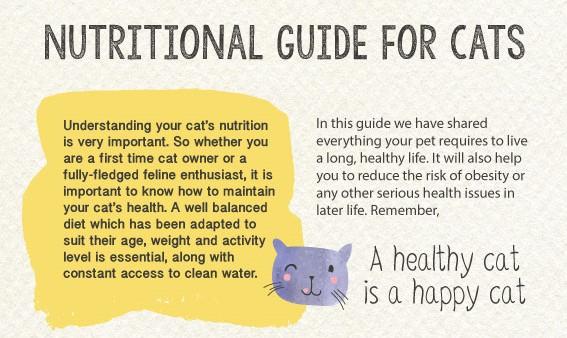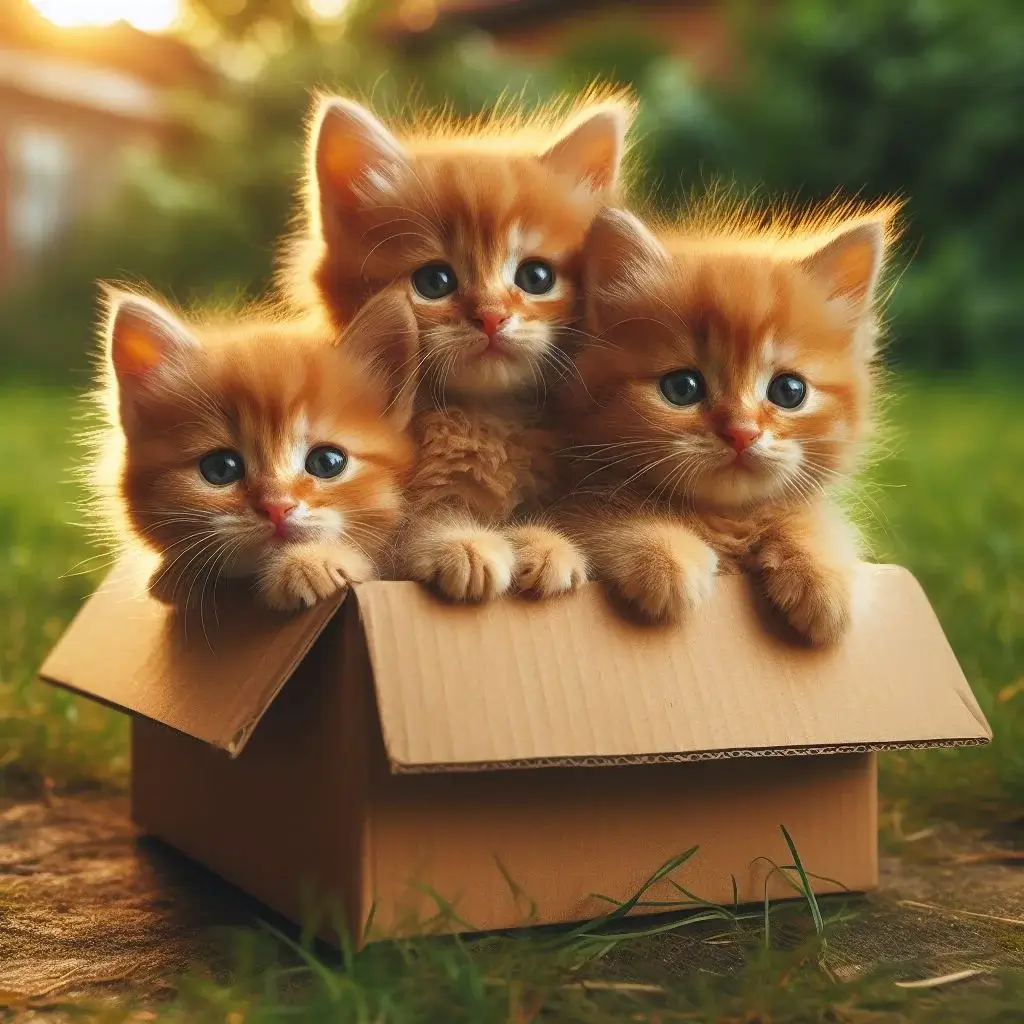Unlock the secrets to optimal feline health with these top cat nutrition tips – your kitty will thank you later!
cat nutrition
Cat Nutriton Table of Contents
- Introduction to Cat Nutrition
- Cat Nutrition : Choosing Quality Cat Food
- Feeding Guidelines for Cats for good Cat Nutrition
- Hydration for Cats
- Cat Nutrition : Special Diets for Cats
- Common Cat Nutrition Food Myths About Cats
- Cat Nutrition Challenges of Homemade Cat Food
- Key Points to Remember
- Frequently Asked Questions (FAQs)
Introduction to Cat Nutrition
When it comes to taking care of your furry feline friend, one of the most important things to consider is their nutrition. Just like how eating healthy food helps you stay strong and full of energy, cats also need the right kind of nutrition to keep them happy and healthy. In this section, we will explore why cat nutrition is crucial and what basic nutrients cats need to thrive.
Just like humans, cats need a balanced diet that includes essential nutrients such as proteins, fats, vitamins, and minerals. Proteins help cats build strong muscles, fats provide them with energy, and vitamins support their overall health. By making sure your cat’s diet includes these important nutrients, you can help them lead a long and happy life.
Cat Nutrition : Choosing Quality Cat Food
When it comes to keeping your feline friend healthy and happy, one of the most crucial decisions you can make is choosing the right cat food. The food you provide your cat plays a significant role in their overall well-being, so it’s essential to make informed choices. Let’s dive into some tips on how to select the best cat food for your furry companion.
Reading Cat Food Labels
Reading and understanding cat food labels is essential to ensure you are providing your cat with a high-quality diet. Look for labels that list a protein source as the first ingredient, such as chicken, beef, or fish. Avoid foods that contain fillers like corn, wheat, or soy, as these offer little nutritional value. Additionally, check for essential nutrients like taurine, omega-3 fatty acids, and vitamins.
Types of Cat Food
There are various types of cat food available, including dry kibble, wet canned food, and raw food diets. Dry food is convenient and helps promote dental health, while wet food can provide additional hydration for your cat. Raw food diets aim to mimic a cat’s natural diet in the wild, but they require careful preparation to ensure they are balanced and safe for your cat.
Feeding Guidelines for Cats for good Cat Nutrition
Feeding your cat the right amount of food is crucial for their health and well-being. The portion sizes will vary depending on your cat’s age, size, and activity level. Kittens, for example, may need to eat more frequently than adult cats. It’s essential to follow the feeding guidelines on the cat food package or consult your veterinarian to determine the appropriate portion size for your furry friend.

Image courtesy of www.simpsonspremium.com via Google Images
Feeding Schedules
There are different feeding schedules you can consider for your cat, each with its own benefits. Free feeding involves leaving food out for your cat to eat whenever they want. This works well for cats who are good at self-regulating their food intake. However, some cats may overeat if given free access to food. Meal feeding, on the other hand, involves feeding your cat at specific times of the day. This can help you monitor your cat’s food intake and ensure they are not overeating. Choose a feeding schedule that best suits your cat’s needs and lifestyle.
Hydration for Cats
Water is crucial for cats to stay healthy and hydrated. Just like humans, cats need water to survive and carry out essential bodily functions. Without enough water, your cat can become dehydrated, which can lead to serious health issues. Dehydration in cats can cause kidney problems, urinary tract infections, and even organ failure.
Tips for Encouraging Cats to Drink Water
Ensuring your cat drinks enough water is essential for their well-being. Here are some tips to encourage your furry friend to stay hydrated:
- Provide fresh water daily in a clean bowl
- Place multiple water bowls around your home
- Consider using a water fountain to entice your cat to drink more
- Feed wet food to increase your cat’s water intake
- Add a little water to your cat’s dry food to make it more appealing
- Monitor your cat’s water intake and consult your veterinarian if you notice any changes
By following these simple tips, you can help ensure that your cat stays properly hydrated and healthy.
Cat Nutrition : Special Diets for Cats
When it comes to cat nutrition, there are instances where special diets may be necessary to address specific health needs. Let’s explore some situations where a tailored diet might be beneficial for your feline friend.
| Category | Nutrition Tip |
|---|---|
| Protein | Ensure your cat’s diet includes high-quality, animal-based protein sources. |
| Water | Always provide fresh water for your cat to stay hydrated. |
| Essential Nutrients | Make sure your cat’s food contains essential nutrients such as taurine, vitamins, and minerals. |
| Portion Control | Avoid overfeeding your cat to prevent obesity and related health issues. |
| Grain-Free Diet | Consider a grain-free diet for cats with allergies or sensitivities to grains. |
| Frequent Meals | Feed your cat small, frequent meals throughout the day to maintain energy levels. |
| Consult a Veterinarian | Consult with a veterinarian to determine the best diet plan for your cat’s specific needs. |
Diet for Overweight Cats
If your cat is carrying some extra pounds, it’s crucial to adjust their diet to help them shed the excess weight. Just like humans, obesity in cats can lead to various health issues like diabetes and joint problems. Consult with your veterinarian to create a meal plan that includes smaller portions and perhaps a switch to a low-calorie diet food to support weight loss.
Diet for Senior Cats
As cats age, their dietary requirements change too. Senior cats may have reduced activity levels and slower metabolisms, which means they require fewer calories. Additionally, older cats might benefit from diets that cater to joint health, kidney function, and overall vitality. Look for specially formulated senior cat foods that address these specific needs to keep your aging feline healthy and happy.
By understanding when and how to implement special diets for cats, you can ensure that your furry companion receives the nutrition they need to thrive throughout all stages of their life.
Common Cat Nutrition Food Myths About Cats
There are many myths out there about what cats can and cannot eat. Let’s take a closer look at some common misconceptions about cat food and feeding.
Myth: Cats Can Drink Milk
One of the most popular beliefs is that cats love milk and that it’s good for them. However, the truth is that many cats are lactose intolerant, which means they can’t properly digest the sugars in milk. This can lead to stomach upset, diarrhea, and other digestive issues. It’s best to stick to water as the main source of hydration for your feline friend.
Myth: Cats Should Eat Fish Every Day
While cats do love fish, feeding them a diet solely composed of fish can actually be harmful. Fish alone does not provide all the necessary nutrients cats need to thrive. Cats require a balanced diet that includes proteins, fats, vitamins, and minerals. Too much fish can lead to nutrient deficiencies and even mercury poisoning. It’s important to offer a variety of proteins to ensure your cat gets all the essential nutrients they need.

Cat Nutrition Challenges of Homemade Cat Food
While homemade cat food offers some benefits, there are also challenges to consider. One major challenge is ensuring that your cat’s diet is properly balanced and meets all of their nutritional needs. Cats require specific nutrients in precise amounts to stay healthy, and achieving this balance can be tricky when preparing meals at home. It may require thorough research and consultation with a veterinarian to create a well-rounded diet for your cat. Another challenge of homemade cat food is the time and effort it takes to prepare and store the meals. It can be more time-consuming than simply opening a can of commercial cat food, so busy pet owners should carefully consider whether they have the resources to commit to making their cat’s food from scratch.
Key Points to Remember
Remember to read cat food labels carefully to ensure you are providing your cat with the necessary nutrients. Additionally, consider the different types of cat food available, such as dry, wet, and raw diets, to find the best option for your cat’s needs.
When it comes to feeding guidelines, be mindful of how much and how often you are feeding your cat. Adjust portion sizes based on your cat’s age, size, and activity level, and explore different feeding schedules to find what works best for your furry companion.
Hydration is also essential for cats, so make sure your cat always has access to fresh water. Encouraging your cat to drink enough water can help prevent dehydration and promote overall health.
Final Thoughts
Remember that good nutrition plays a significant role in your cat’s overall well-being. By following the tips and guidelines outlined in this article, you can ensure that your cat leads a healthy and fulfilling life. So, prioritize your cat’s diet and nutrition to keep them happy and thriving!
Frequently Asked Questions (FAQs)
Q: Is it okay to feed my cat table scraps for good cat nutrition?
It is generally not recommended to feed your cat table scraps. While some foods may be safe for cats, many human foods can be harmful to them. It’s best to stick to a balanced and nutritionally complete cat food diet to ensure your feline friend gets all the essential nutrients they need.
Q: How can I tell if my cat is getting enough to eat?
Monitoring your cat’s weight and body condition is a good way to determine if they are getting enough food. You should be able to feel your cat’s ribs without them being overly prominent. Consult with your veterinarian to determine the appropriate portion sizes for your cat based on their age, size, and activity level.
Q: For Can I mix different types of cat food together?
Mixing different types of cat food, such as dry kibble and wet food, can be a great way to provide variety in your cat’s diet. However, it’s essential to ensure that the combined foods meet your cat’s nutritional needs. Consult with your veterinarian to determine the best combination of cat foods for your pet.
Remember Jesus Loves You!
The wolf and the lamb shall feed together, and the lion shall eat straw like the bullock: and dust shall be the serpent’s meat. They shall not hurt nor destroy in all my holy mountain, saith the Lord. Isaiah 65:25 KJV





